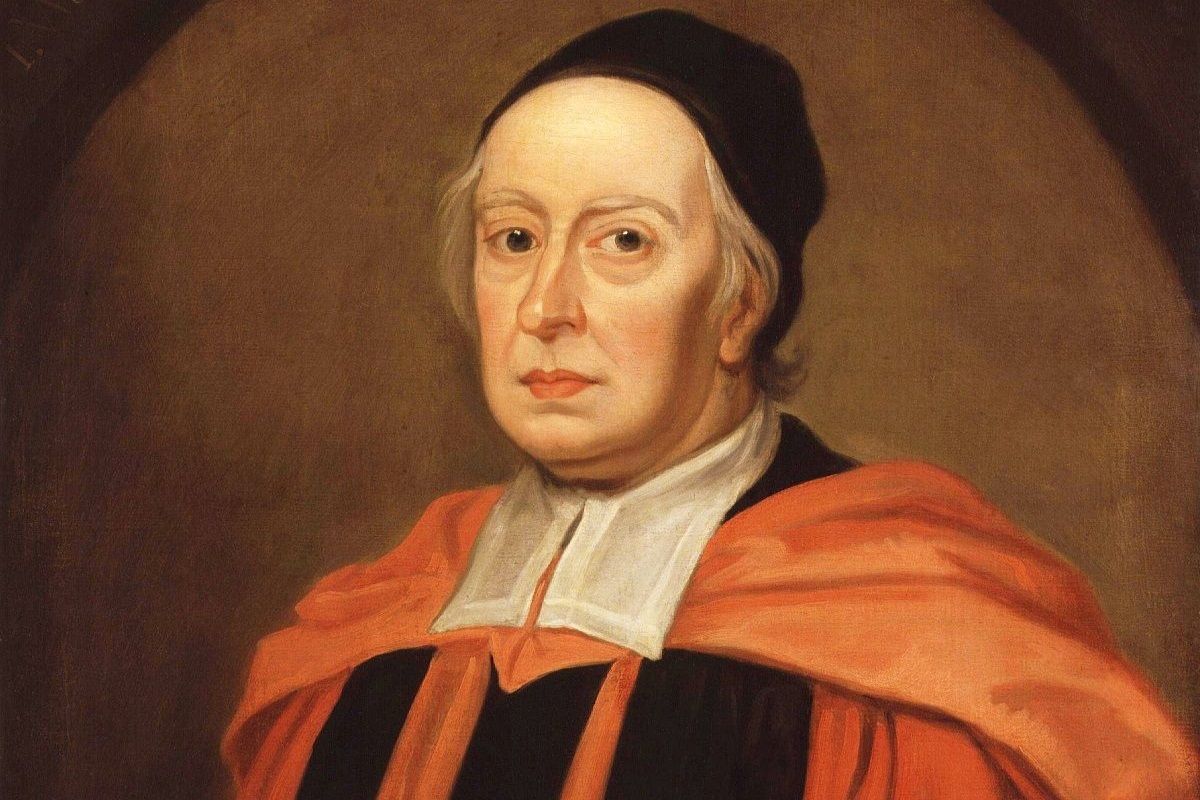
John Wallis is a name that may not immediately ring a bell for everyone, but his contributions to various fields have left a lasting impact on history. Born on November 23, 1616, in Ashford, Kent, Wallis was a renowned mathematician, theologian, and linguist. His brilliance and innovation paved the way for significant advancements in mathematics and the development of a universal language.
In this article, we will explore eight fascinating facts about John Wallis that showcase his ingenuity and remarkable achievements. From his groundbreaking work in calculus and the invention of the symbol for infinity to his contributions to cryptography and deciphering codes during the English Civil War, Wallis was a multifaceted genius ahead of his time.
Join us as we delve into the intriguing life and accomplishments of John Wallis, uncovering the lesser-known details that make his story all the more captivating and inspiring.
Key Takeaways:
- John Wallis was a brilliant mathematician who introduced the concept of infinitesimals and invented the symbol for infinity, making significant contributions to the field of mathematics.
- In addition to his mathematical prowess, Wallis was also a skilled codebreaker and a founding member of the Royal Society, leaving a lasting impact on both mathematics and scientific research.
John Wallis was a renowned mathematician.
John Wallis, born on November 23, 1616, in Ashford, Kent, England, was a prominent mathematician and theologian. He made significant contributions to the fields of calculus and algebra, revolutionizing the way mathematical concepts were understood during his time.
Wallis introduced the concept of infinitesimals.
One of Wallis’s notable achievements was his introduction of the concept of infinitesimals in mathematics. He played a vital role in developing the study of calculus and providing a foundation for future mathematicians to build upon.
He invented the symbol for infinity (?).
John Wallis is credited with the creation of the symbol for infinity (?), which is widely used in mathematics and represents a concept that is unbounded or limitless. His symbol has become an integral part of mathematical notation.
Wallis was a pioneer in cryptography.
Aside from his mathematical contributions, John Wallis was a skilled cryptographer. During the English Civil War, he worked as a codebreaker, deciphering secret communications and providing valuable intelligence to the parliamentary forces.
He held the position of Savilian Professor of Geometry at the University of Oxford.
John Wallis’s expertise in mathematics led to his appointment as the Savilian Professor of Geometry at the University of Oxford in He held this prestigious position until his death in 1703, leaving a lasting impact on the field of mathematics.
Wallis made significant advancements in the theory of conic sections.
John Wallis made significant contributions to the study of conic sections, the shapes formed by intersecting a cone with a plane. His work laid the foundation for the development of modern geometry and its applications in various fields.
He was a founding member of the Royal Society.
John Wallis was among the founding members of the Royal Society, a prestigious scientific institution established in His involvement in the society further facilitated the exchange of ideas and advancements in scientific research.
Wallis published numerous influential mathematical texts.
Throughout his career, John Wallis authored and published several influential mathematical books, including “Arithmetica Infinitorum” and “Mathesis Universalis.” These works not only contributed to the development of mathematics but also spread knowledge to future generations of scholars.
Conclusion
John Wallis was truly a remarkable individual, whose contributions spanned various fields such as mathematics, linguistics, and music theory. His innovative ideas and groundbreaking work continue to influence scholars and researchers today. From his creation of the Symbolic Logic system to his role in the development of calculus, Wallis’s intellectual prowess was undeniable. Additionally, his contributions to cryptography and the study of prime numbers showcased his versatility as a mathematician.Not only was Wallis a gifted mathematician, but he also had a deep understanding of philosophy and theology, which he integrated into his mathematical theories. His ability to bridge the gap between seemingly unrelated disciplines demonstrated his multidisciplinary approach to knowledge. Furthermore, his dedication to teaching and mentoring students ensured that his legacy would continue to inspire future generations of mathematicians.In conclusion, John Wallis was a true Renaissance man, whose intellectual curiosity and innovative thinking left an indelible mark on various fields of study. His legacy serves as a testament to the power of interdisciplinary collaboration and the pursuit of knowledge for the betterment of society.
FAQs
1. What were John Wallis’s major contributions to mathematics?
John Wallis made significant contributions to mathematics, including the development of infinitesimal calculus, the introduction of the Symbolic Logic system, the study of prime numbers, and his work in cryptography.
2. Was John Wallis involved in any other fields apart from mathematics?
Yes, John Wallis was not only a mathematician but also had an interest in linguistics and music theory. He explored the relationship between language and mathematics and wrote extensively on the subject.
3. How did John Wallis impact the development of calculus?
Wallis played a crucial role in the development of calculus by introducing key concepts such as the integral and differential calculus. He derived fundamental formulas and methods that laid the foundation for future advancements in this field.
4. Did John Wallis have any noteworthy students or mentees?
Yes, John Wallis was known for his dedication to teaching and mentoring students. Some of his notable students include Isaac Newton, who went on to become one of the most prominent mathematicians and physicists in history.
5. How does John Wallis’s work continue to influence modern mathematics?
Many of John Wallis’s theories and discoveries are still used in modern mathematics. His contributions to calculus, number theory, and logic have provided the groundwork for many advanced mathematical concepts and techniques used today.
John Wallis's groundbreaking work paved the way for future mathematicians, including prodigies like Srinivasa Ramanujan, whose mastery of infinite series astonished the world. Wallis's contributions to calculus laid the foundation for this essential branch of mathematics, which continues to shape our understanding of the universe. Explore more captivating stories about the lives and achievements of brilliant mathematicians, and uncover the fascinating world of mathematics, from its ancient origins to its modern-day applications.
Was this page helpful?
Our commitment to delivering trustworthy and engaging content is at the heart of what we do. Each fact on our site is contributed by real users like you, bringing a wealth of diverse insights and information. To ensure the highest standards of accuracy and reliability, our dedicated editors meticulously review each submission. This process guarantees that the facts we share are not only fascinating but also credible. Trust in our commitment to quality and authenticity as you explore and learn with us.


